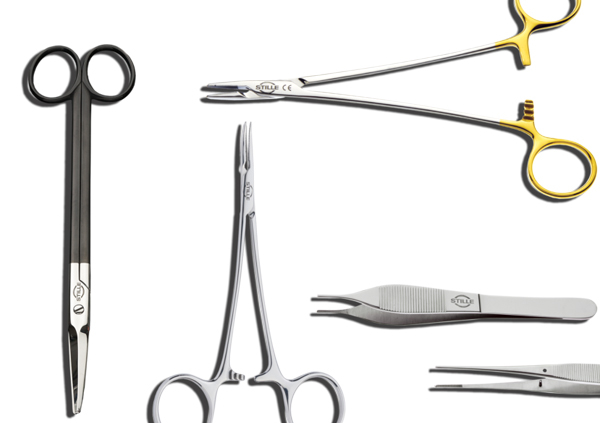What is Surgical Steel & What’s The Difference From Stainless Steel?
You have to be able to rely on your surgical instruments. The size and the function are important, but just as important is the quality of the steel.
This is your essential guide to surgical steel. We’ll explore how it differs from standard stainless steel, before addressing some of the most commonly asked questions people have about surgical steel. Finally, we’ll let you know how you should choose the right steel quality for your surgical purposes.
What Is Surgical Steel?
Surgical steel is a low-carbon steel containing high concentrations of chromium. This chromium reacts with oxygen in the air to form a stable oxide bond that helps prevent rust. Surgical steel is also nonporous, making it more hygienic for use in clinical environments. And as it’s chemically inert, you can safely sterilise surgical steel with no risk of corrosion or degradation.
What Are The Differences Between Surgical Steel and Stainless Steel?
This is where it can get confusing. For while almost all surgical instruments are made from stainless steel, not all stainless steel is suitable for medical use.
Stainless steel comes in a variety of grades. Medical grade stainless steel – that is, surgical steel – tends to have a higher concentration of chromium. Surgical steel will contain at least 13% chromium, compared to standard stainless steel’s 10.5%.
Surgical steel can also contain a higher concentration of Molybendum, to further reduce corrosion, and nickel, which reduces its brittleness. However, surgical devices designed for use as implants will usually have a lower nickel content, to prevent infection in the patient’s body.
Does Surgical Steel Rust?
No – the oxide bond produced by the chromium coats the surgical steel like a film. This means that even if you damage the steel’s exterior, the film will heal itself, making it impossible for rust to take hold.
Is Surgical Steel Self-Healing?
This self-healing quality is crucial for healthcare applications. Small fissures in the surface of steel can work as a breeding ground for bacteria. With surgical steel, any fissures will close themselves before bacteria can take hold. This, combined with ongoing sterilisation, helps keep surgical steel suitably hygienic for medical use.
Does Surgical Steel Stain?
Surgical steel is a form of stainless steel. But the name “stainless steel” can be misleading. It’s not “stainproof steel”. It’s “stainless steel”. It’s less likely to stain, but stains are still possible.
In time, all types of stainless steel corrodes and stains. Surgical steel is no exception – though the higher chromium content can make it a lot more durable than standard stainless steel.
The correct cleaning procedures can greatly prolong the lives of surgical steel instruments. For example, using deionised water with high-quality cleaning chemicals can reduce water spotting while helping avoid mineral deposits forming in the wash cycle.
But unfortunately, no surgical instrument can be used indefinitely. Your surgical instrument supplier will be able to advise you on how long you can expect to use your instruments before they need replacing.
Is Surgical Steel Magnetic?
Many grades of surgical steel are magnetic. The steel’s chemical composition determines whether or not it’s magnetic. A large quantity of ferrite will make surgical steel magnetic. Also, surgical steel that’s been heat-treated for extra durability is usually magnetic owing to an abundance of iron.
However, surgical steel containing particularly high chromium content – at about 30% – along with nickel is more likely to be non-magnetic.
If you need more information on whether the surgical steel you need should be magnetic or non-magnetic, get in touch to talk to one of our experts today.
How To Choose The Right Steel Quality for Surgical Purposes
There are many different grades of surgical steel, and each is suitable for a different range of applications.
Some grades offer increased sharpness, flexibility or durability. Others are more resistant to corrosion, and some are designed to be used as implants, either permanently or temporarily.
We offer one of the most comprehensive ranges of surgical instruments on the UK market, and our experts are always on-hand to discuss your needs. So if you’d like some guidance on the right steel quality to choose for your application, get in touch to talk to an expert today.



